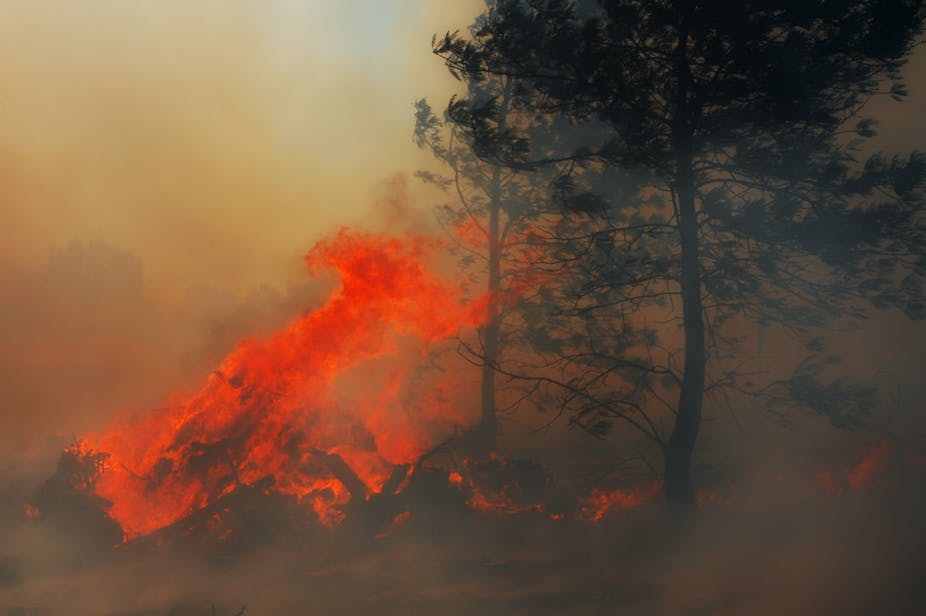The Abbott Government’s proposed repeal of Australia’s climate legislation will be heard through history.
This action is being taken at a time when the rest of the world is moving in the other direction. As the effects of climate change become clearer to the Australian public, the political legacy of this act of repeal is likely to be seen as a historic mistake.
The repeal will remove the principal instruments of government policy that can credibly reduce CO2 and other greenhouse gas emissions. Going out the door will be an emissions trading system that places binding limits on emissions on key sectors, and would place a price on carbon, and an effective clean energy finance system that is already having an effect.
The present system is as fundamental a reform as Medicare and the floating of the Australian dollar. The replacement is direct regulation and limited funding that all independent analysts agree cannot reduce emissions to the same extent nor as cost-effectively.
Instead, the repeal seems very likely to result in [emissions exceeding 2000 levels](http://www.climateinstitute.org.au/verve/_resources/SKM_ReviewofSubsidyandCarbonPriceApproaches_August2013.pdf “), and far away from even the least ambitious goal of a 5% reduction from 2000 levels by 2020 that the present system is designed to achieve.
Doing something serious about climate change means putting a limit and a price on carbon: all economists know that and it has been a finding of successive IPCC reports on the economics of reducing greenhouse gas emissions.
To disagree about whether the price should come from a tax or a trading system is one thing. Repudiating the very idea of a carbon price is quite another. This is where climate denialism hits the real world of policy - a denial of one of the core policy instruments needed to reduce emissions is in effect denial of the need to act.
The outbreak of denial in Government ranks about the well-established connection between wild fires and increased heat extremes from climate change adds to the surreal aspects of this debate. That a Minister resorts to Wikipedia to justify his position of no connection between climate change and wildfires is nothing less than a repudiation of the world class climate science community in Australia.
It is more than extraordinary that this is happening in 2013 when the IPCC has just released its Fifth Assessment Report (AR5) on the physical basis of climate change, with the last decade warmer than any before it, climate impacts visible around the world and Australia in the middle of its hottest-ever year.
Sadly, the huge fires that have burnt out of control in New South Wales are a portent of what is to come: these fires are big, early and consistent with the predictions of climate models coupled to fire danger index systems. Climate scientists have a duty to point this out to the public: the more carbon we put in air the more climate impacts we will get.
Australia is among the regions expected to experience highly adverse effects from increased heat extremes, more extreme droughts and sea level rise, even at warming levels of only 2C.
A year from now, the UN Secretary General Ban Ki-moon will host a Head of Government Summit on climate change as one pillar of "ambition” including targets and actions by countries. Australia and other nations will be expected to come to this meeting with bold new pledges to reduce emissions to levels that can hold warming below 2C.
The Abbott Government will face its first real test on climate policy internationally in a couple of weeks at the international climate talks in Warsaw. One of the main issues will be the willingness of governments to increase the level of ambition on climate action.
It will be interesting to see whether the Government even sends a minister, given that it plans to put forward its repeal of the climate policy legislation while the Warsaw Conference of Parties (COP) is underway. The absence of an Australian minister at a COP would be highly unusual. Given this would be due to efforts of the new government to dismantle the legislative basis for Australia to increase its level of ambition, would speak for itself.
We know that it is scientifically, technically and economically feasible to hold the increase in global warming below 2C. We know with certainty there are more than enough measures governments can mandate to get us off the present path towards 4C. But in the end these will need binding limits on emissions across all key sectors and a price on carbon.
Politicians may try to run from climate change, but the laws of physics that drive the climate system cannot be repealed. They permit no hiding place: not in the deepest seas or the highest mountains and certainly not in the highly vulnerable landscapes and marine environments of our country.
The Prime Minister should perform a real act of leadership. He should inform the country that climate science is solid and - while no single event can yet be attributed to global warming - the extreme and unusually early fires in Sydney are a signal of what is to come unless we all knuckle down and work on reducing our emissions.
In the same breath, he could warn the country, based in the current forecast of the season ahead, that the next six months are going to be unusually hot, dry and risky.
And he will send his environment minister to Warsaw with the message to accelerate international action, confirming Australia stands ready to play its part.

